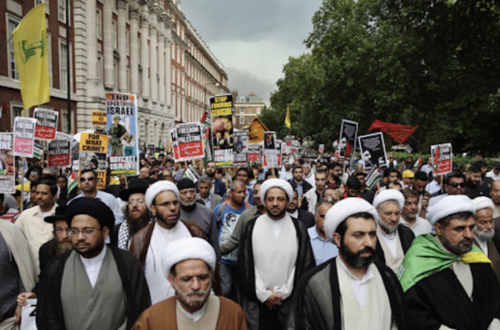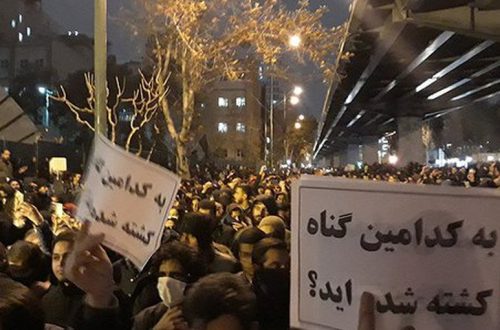At a moment when American politics is going through one of its periodic bouts of insanity, it’s good to read some of the comments by Amir Hekmati, the former US Marine who was arrested in 2011 on spying charges while visiting his grandmother in Iran and was released on January 16 as part of a prisoner swap accompanying the implementation of the nuclear agreement.
Hekmati expressed deep gratitude for the support from loved ones, the news media and elected officials, including President Obama.
“Even the Iranian officials, our captors essentially, were amazed,” he said. “They asked us, ‘Why are they working so hard for you?’ And I just said that it’s America and they love their citizens. Even the other Iranian prisoners were moved.”
When the plane finally took off, and then cleared Iranian airspace, the celebration began.
“Champagne bottles were popped” aboard the Swiss government jet, he said. “The Swiss are amazing. The hospitality. Chocolates. Veal was served.” Switzerland handles U.S. diplomatic affairs with Iran in the absence of direct diplomatic relations between Washington and Tehran.
On a related note, Daniel Drezner writes about the hazards of instant punditry when it comes to foreign policy among those who have no idea what’s going on behind the scenes.
For example: Remember how the Obama administration was accused of weakness for failing to impose immediate sanctions on Iran after it illegally tested ballistic missiles? I’ll admit to having similar concerns. But it turns out that the US was, quite sensibly, waiting until the American prisoners were out of Iran before imposing them— a move that has not exactly won favor with the Iranian regime to whom the US is regularly accused of kowtowing.
Hillary Clinton had some sensible things to say about US-Iranian relations in an interview with Rachel Maddow:
MADDOW: Well, let me ask you, start with something very much in the headlines right now, and interestingly, it was in the headlines during President Obama’s State of the Union. That was the situation with these sailors who were taken by Iran.
CLINTON: Right, right.
MADDOW: Obviously released yesterday, in part because we have more open lines of diplomatic communication with Iran, which is a good thing. What’s your reaction, though, to Iran videotaping these Americans as prisoners, broadcasting their surrender on their boats, what appeared to be an out-of-context apology. Was that upsetting? Should there be consequences for that?
CLINTON: Well, of course, it was upsetting to me. I think that the American sailors and up the command chain made it clear it looked like there was a mistake, you know, we were inadvertently in their territorial waters.
OK. Fine. Let’s recognize it and let’s move on. Don’t try to turn it into some political propaganda coup, because it isn’t and shouldn’t be. And it raises the kind of challenges we’re going to have going forward with Iran, because after all, I support it, I helped start the process that led to the agreement on the nuclear weapons. And we have to enforce that agreement vigorously. If there are any slips or misses on the parts of the Iranians, there have to be consequences.
But we have this whole other arena of problems we have to deal with when it comes to Iran.
MADDOW: Nonnuclear issues.
CLINTON: Nonnuclear issues. In fact, one of the best arguments for the nuclear agreement was let’s put a lid on their nuclear weapons program, it would give us time and breathing space to deal with a lot of the aggressiveness, the undermining of governments, continuing outrageous support of Assad as he murders his people day after day.
So, it wasn’t clear to me, but if I were guessing, you’re right, good that we have an open channel. Because when I was there we had very little opportunity to communicate. It was complicated. We would often have to go through other countries to get a message –
MADDOW: As intermediaries.
CLINTON: Intermediaries, right. So, that’s the good side.
The not-so-good side is, if you’re going to be a mature country and you’re going to shoulder responsibilities, which your leaders claim you are ready to do, act like it. So –
MADDOW: In terms of pressing Iran for consequences on that, what would you do?
CLINTON: I think on this one, I would put them on notice that, just as we’ve said and I have given a lot of remarks about this, we’re going to enforce the nuclear agreement very vigilantly, we’re also going to be looking – if they want to play a game where they turn something that was accidental into an international case, well, they’re going to have to take the consequences if we do the same.


